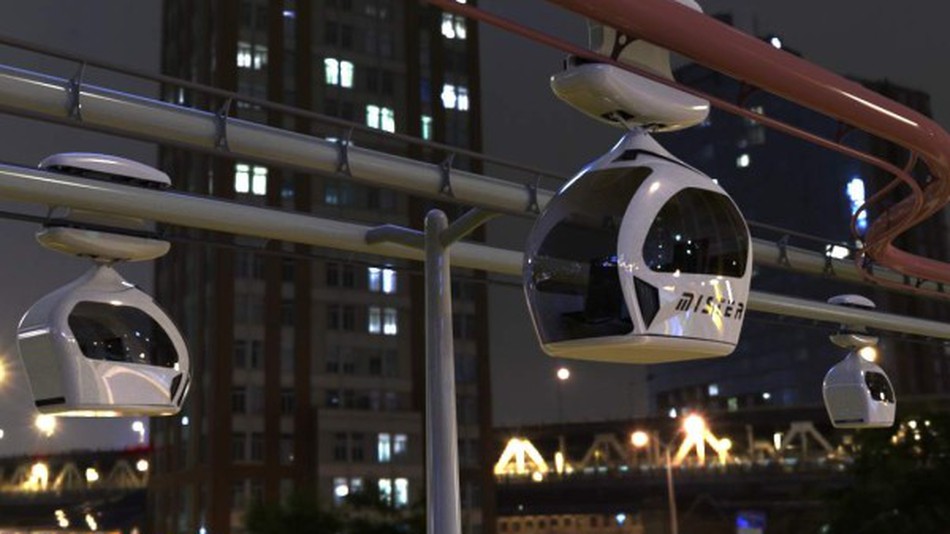Futuristic Pod Taxis To Beat Traffic Blues

Gurgaon, a suburb of New Delhi and home to India headquarters of MNC's like Google, Microsoft and Apple, is about to get driverless electric pods to alleviate the traffic woes faced by thousands of people who commute to their offices daily.
The pilot project is expected to connect the Delhi border to the interiors of Gurgaon, with 16 stations spread over a distance of 13 km. The driverless electric pods will be suspended from overhead rails, and run at regular intervals.
The average speed of the pods is 60 km per hour and they can be used to transport between five to six commuters in each ride. The pilot project is expected to carry 30,000 passengers a day and will cost approximately Rs 8.5 billion ($126 million), which is lesser than what it would take to build a metro network over the same distance.
The Indian government is currently processing the bids that it has received from global companies for the project and is expected to make a final announcement by next month. It hopes that the project will reduce traffic on the National Highway-8, which connects Delhi to Gurgaon and the city's international airport.
It still remains debatable whether the small-scale nature of the pod taxi project is the right choice for New Delhi and Gurgaon's traffic woes.
However, it still remains debatable whether the small-scale nature of the pod taxi project is the right choice for Delhi and Gurgaon's traffic woes, instead of large public transport systems. In 2011, a similar elevated pod transport project was announced for the city of Amritsar, but was abandoned in 2014 after facing criticism from shopkeepers, small traders and heritage lovers, and being considered financially unviable.
Early reports suggest that the pod taxi service will be similar to Skytran, a NASA partner startup that plans to change public transport by building a network of levitating pods running on elevated rails. Skytran is currently working on its pilot project in Tel Aviv.
Personal rapid transport system has also been tried at several locations across the world, but on a smaller scale. The oldest and most extensive is at Morgantown, West Virginia. Smaller pod networks are also being operated in the Masdar City business park in the UAE, at London's Heathrow airport and at Suncheon in South Korea. Singapore is also expected to get its first set of driverless pod vehicles later this year.
